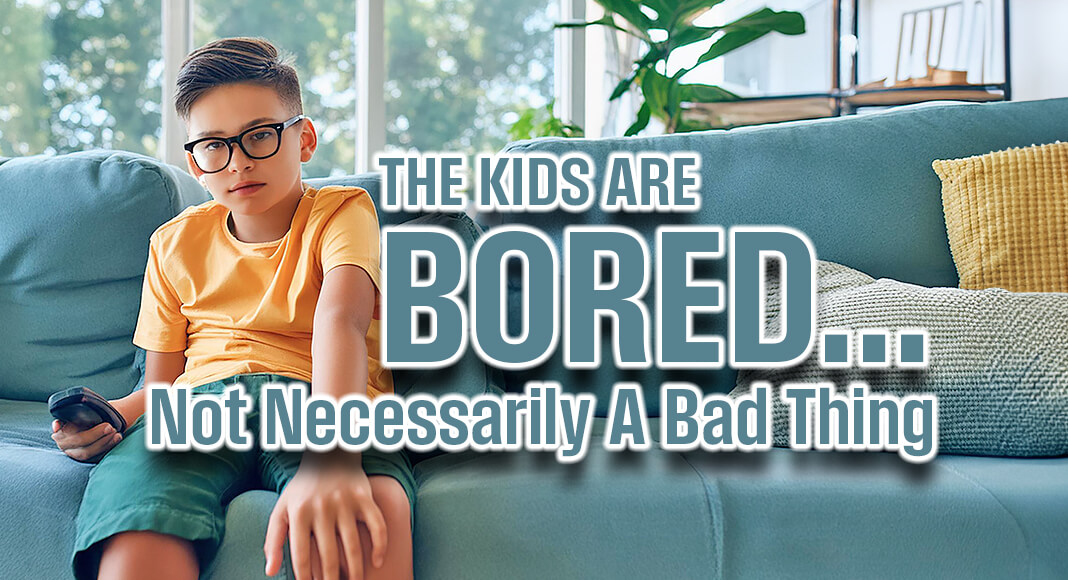
Mega Doctor News
By Genaro C. Armas, American Heart Association News
It’s summertime and the kids are home from school when one day they walk into the kitchen and say, “I’m bored!”
For parents, the first inclination might be to find something for the children to do. Go play outside. Clean your room. Work on an art project.
But, experts say, don’t underestimate the value of just letting kids figure out how to occupy the time on their own.
“Let them feel bored. And let them try out ways to reduce it, because that’s how we learn to manage any of our emotions, including boredom,” said Dr. Erin Westgate, an assistant professor of psychology at the University of Florida in Gainesville and director of its Florida Social Cognition and Emotion Lab.
A 2023 Frontiers in Sociology study defined boredom as a “state of mind characterized by a lack of interest, stimulation, or challenge. It is a subjective experience that can manifest in a variety of ways, including restlessness, apathy, and disinterest.” Boredom can affect mental health, cognition and behavior, and has links to depression, anxiety, impulsiveness and increased risk-taking.
How people experience boredom can manifest in different ways and differ by situation, Westgate said, just like how some people may express happiness, sadness or other feelings differently.
In general, an interconnection exists between the mind, body and heart, according to a 2021 American Heart Association report, which cited the importance of mental health as a component for the well-being of people who have, or are at risk for, cardiovascular disease.
Boredom is different from relaxation. Something that one finds relaxing often involves an activity that still stimulates the mind, such as riding a bike, gardening or reading a book, said Dr. Michael Rich, director and founder of the Digital Wellness Lab at Boston Children’s Hospital and an associate professor of pediatrics at Harvard Medical School.
Boredom may still have a couple physical benefits. For instance, Rich said, someone who is bored at night may find it easier to go to sleep and get more sleep. The benefits of adequate sleep include improved heart health and a lower risk of chronic conditions, such as heart disease and high blood pressure, according to the Centers for Disease Control and Prevention.
Rich is especially enthusiastic about the benefits that moments of boredom present for kids from a developmental perspective, and the potential to spark creativity and free play. Such play can provide children with moments to figure out problems or think creatively – skills that become essential as they grow older, said Rich, who recently wrote a book about raising kids in the digital age.
Play is essential to development because it “contributes to the cognitive, physical, social and emotional well-being of children and youth,” while also offering opportunities for parents to fully engage with their children, according to a 2007 report from the American Academy of Pediatrics.
People should embrace moments of boredom “as a gift of not having to do anything else right now,” Rich said, “and use that gift … in ways that enrich us, even if it’s daydreaming or just being silly.”
For parents, one solution for alleviating a child’s boredom is to book their schedule to completely occupy their time. But that also means that kids may never experience boredom and what they can do about it, Westgate said.
Instead, she said, one strategy for parents or caregivers is to talk with kids ahead of time about activities they might enjoy in moments of boredom. It’s an opportunity to teach children how to self-regulate their own emotions, similar to how parents may teach kids to soothe themselves back to sleep when they wake up in the middle of the night.
“Boredom isn’t bad. It’s just feedback. And like pain, it’s not necessarily enjoyable, pleasant feedback,” Westgate said. “But it’s still really important, useful information that gives us sort of a tool to act on that tells us, ‘Hey, this is wrong, and this is an opportunity to fix it and feel better.'”









